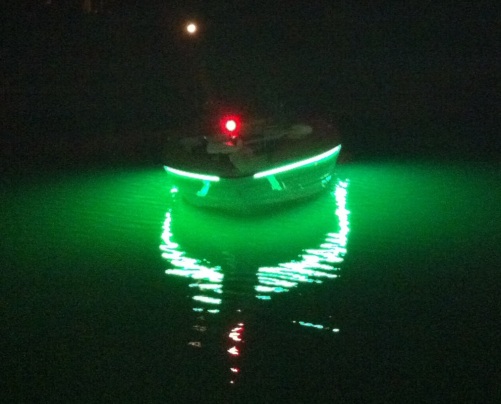Tuesday, 03/03/2026 | 16:19 GMT+7
Currently, the lighting technology used in offshore fishing boats relies on traditional high pressure lamps, incandescent, halogen, fluorescent, compact lamps, made in China, South Korea, accounting for over 50% of the total cost operation of each round offshore, increasing the financial burden for fishermen.
From this reality, the Quang Tri Provincial Department of Science and Technology and the Vinh Cuu Technology and Energy JSC have implemented a project, a feasibility study for LED applications on offshore fishing boats in Quang Tri, with the entire project funded by the Japanese partner.

The Project selected two fishing boats of 200CV capacity in Cua Viet town and Trieu An commune, to replace the traditional halogen lighting with installation of LEDs mainly manufactured by Stanley Electrics Company. On the fishing vessel 1009TS specializing squid capture, 20 LEDs (powerful class) are installed. As for fishing vessel 90145QT specializing in anchovy capture, the previous floodlight gantry is replaced with 20 LEDs on both sides, with a total value of nearly VND 1 billion. The vessels are mounted with gauges for monitoring power consumption and recording each trip diary for the scientific data to be analysed in future assessments.
After nearly three months of implementation, the findings show that the effectiveness of the use of Japanese LED technology is economical. According to initial calculations, the 90145QT ship saves about 70% of fuel compared with previous consumption in using traditional lighting, and thus, it could save VND19 million/month. Regarding the 1009TS ship, it saves over VND21 million/month (at the oil prices of VND17,000 / liter).
This is a remarkable initial signal in Japan's support in Quang Tri Province in particular and Vietnam in general, to strengthen the capacity building in the field of energy conservation and power savings through the promotion of technology transfer from Japan into Vietnam. The practical application of science and technology contributes to the improvement of the quality of life of the fishermen, while reducing the CO2 emissions in order to protect the environment.
Trong Tan







